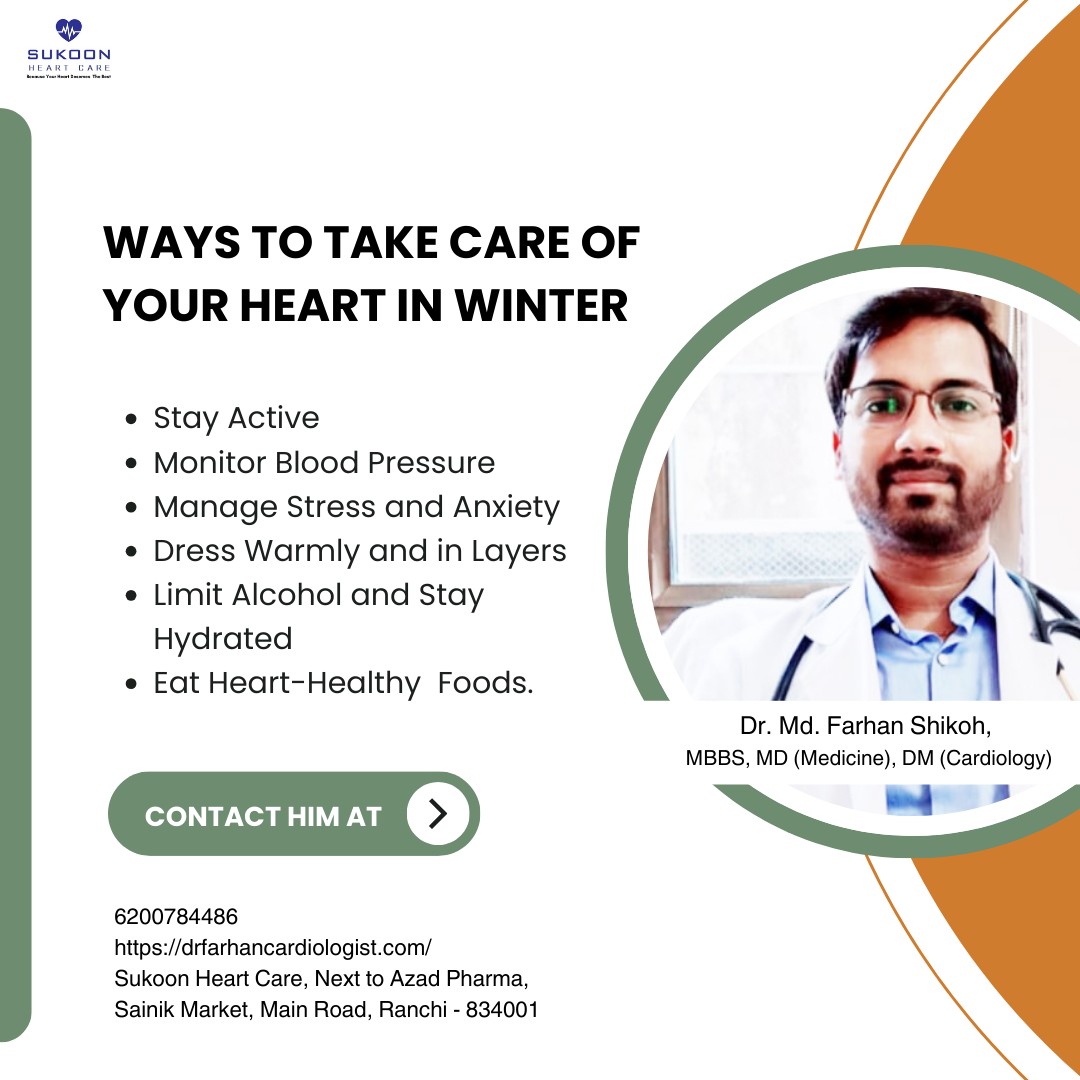As the winter months approach, it’s essential to consider how colder weather can affect your heart health. While winter may be a time for cozy sweaters and festive cheer, it can also present challenges for those with existing heart conditions. The cold weather causes blood vessels to constrict, which increases the workload on the heart, making it essential to take steps to protect your heart during the colder months.
Here are some winter care tips to help maintain heart health:
1. Keep Warm
Cold temperatures can strain the heart by increasing blood pressure and making the heart work harder to pump blood. It's essential to stay warm, especially during outdoor activities. Wear layers, including hats and gloves, to protect yourself from the cold. Also, avoid sudden exposure to cold, such as stepping outdoors in extreme cold without proper preparation.
2. Stay Active
While it’s tempting to stay indoors when it’s cold outside, regular physical activity is vital for heart health. Engage in moderate exercise like walking indoors or participating in activities like yoga or stretching. If you plan to exercise outdoors, be sure to warm up before stepping into the cold and dress in layers to prevent muscle stiffness.
3. Monitor Blood Pressure and Cholesterol Levels
Winter can affect blood pressure levels, so it’s important to keep track of your readings. Cold weather can cause blood vessels to tighten, raising blood pressure. High blood pressure is a major risk factor for heart disease. Regular monitoring, along with maintaining a healthy diet and taking prescribed medication, can help prevent heart-related issues.
4. Watch Your Diet
During the winter, many people turn to comfort foods that are high in salt and fat. A diet rich in fruits, vegetables, and whole grains, along with lean proteins and healthy fats, can help keep your heart in good shape. Reducing sodium intake and avoiding heavy, fatty foods can prevent strain on the heart.
5. Stay Hydrated
Though you may not feel as thirsty in the winter as you do in the summer, staying hydrated is crucial. Dehydration can increase the risk of heart complications, so be sure to drink plenty of water throughout the day. Warm teas or water can help maintain hydration and comfort in cold weather.
6. Get a Flu Shot
During winter, the risk of illnesses such as the flu increases, which can have serious consequences for individuals with heart disease. The flu can cause additional strain on the heart, making it harder to recover. A flu shot can help reduce the risk of complications and keep your heart healthy.
7. Avoid Stress
Holiday stress is real, and stress can have significant effects on heart health. Take time to relax and engage in stress-reducing activities such as meditation, breathing exercises, or simply taking a quiet walk. Reducing stress helps keep blood pressure in check and improves overall heart function.
8. Know the Warning Signs
The cold weather can sometimes mask symptoms of heart problems. Be aware of signs such as shortness of breath, chest pain, dizziness, or extreme fatigue. These could indicate heart-related issues, and it’s crucial to seek medical attention if you experience any of these symptoms.
Consultation with Dr. Md. Farhan Shikoh, Best Heart Specialist in Ranchi
If you have concerns about your heart health during the winter months or want to discuss specific risks, Dr. Md. Farhan Shikoh, Best Heart Specialist in Ranchi, can help. Dr. Shikoh is a renowned cardiologist based at Sukoon Heart Care, located at Sainik Market, Main Road, Ranchi, Jharkhand - 834001. For consultation, you can reach out at 6200784486 or visit the official website https://drfarhancardiologist.com/.
#bestcardiologistinranchi #bestheartdoctorinranchi #bestheartspecialistinranchi #bestdiabetesdoctorinranchi #sukoonheartcare #ranchi #drfarhanshikoh






